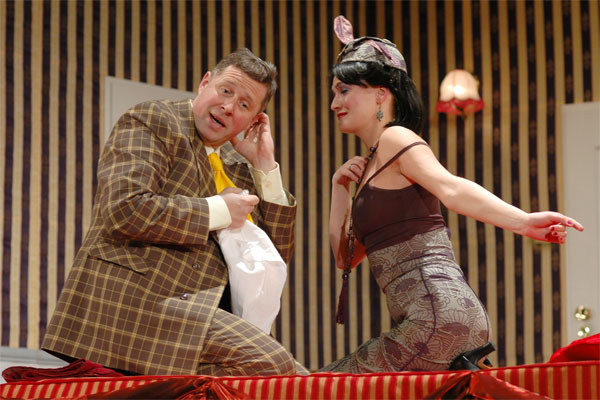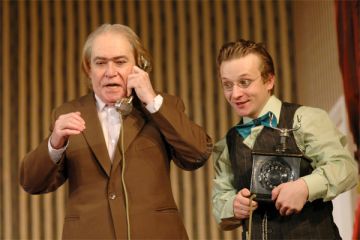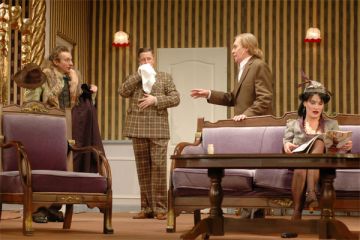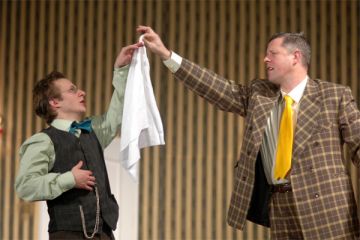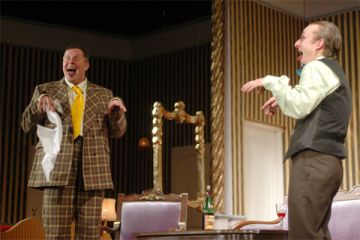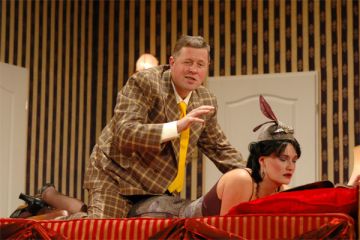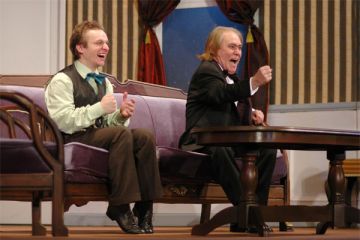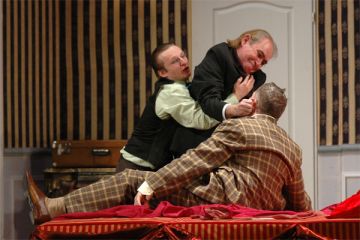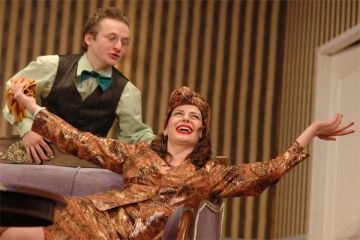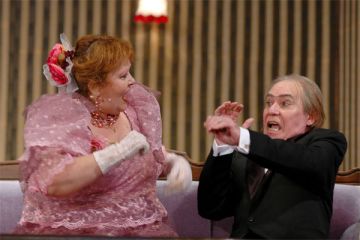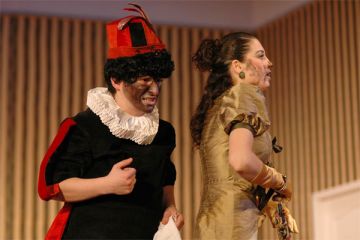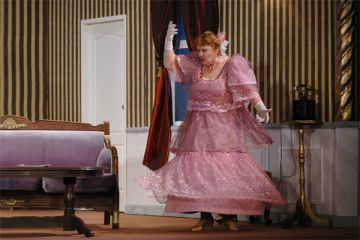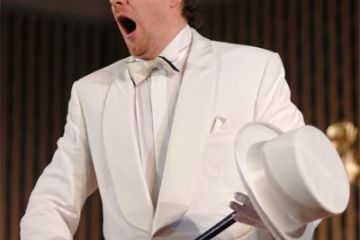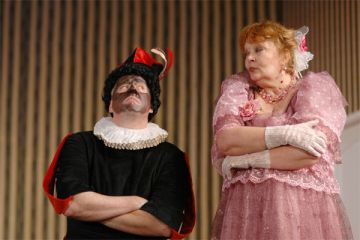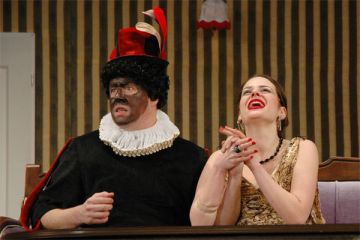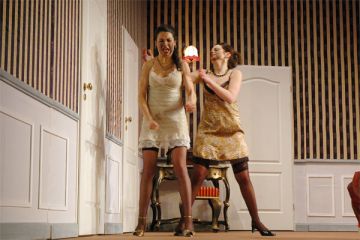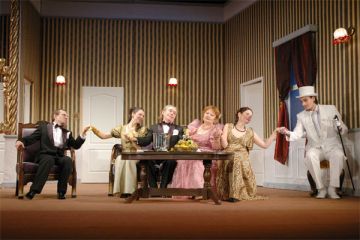Ken Ludwig
Lend Me a Tenor
Main stage
Max, assistant to Saunders
Ernő Galló
Maggie, Max's girlfriend
Enikő Györgyjakab
Saunders, Maggie's father, general manager of the Cleveland Grand Opera Company
Ferenc Boér
Tito Merelli, a world-famous tenor
András Hatházi
Maria, Tito's wife
Emőke Kató
Bellhop
Szabolcs Balla/ Ervin Szűcs
Diana, a soprano
Andrea Vindis
Julia, Chairman of the Opera Guild
Júlia Borbáth
directed by
Peter Bokor dramaturg
Noémi Krisztina Nagy set design
Puiu Antemir costume design
Anca Marcu choreography
Ferenc Sinkó musical consultant
Katalin G. Incze director's assistant
Levente Borsos stage manager
Levente Borsos prompter
Zsófi Bálint
Ernő Galló
Enikő Györgyjakab
Ferenc Boér
András Hatházi
Emőke Kató
Szabolcs Balla/ Ervin Szűcs
Andrea Vindis
Júlia Borbáth
directed by
Peter Bokor
Noémi Krisztina Nagy
Puiu Antemir
Anca Marcu
Ferenc Sinkó
Katalin G. Incze
Levente Borsos
Levente Borsos
Zsófi Bálint
Date of the opening: january 18, 2006
Prosaic, everyday life in Cleveland is suddenly interrupted by sensational news. The world-famous tenor, Tito Merelli, is going to perform in front of the enthustiastic, provincial opera-audience. The characters of the play wait for “the Magnificent” as for their own “saviour”. The General Manager of the Cleveland Grand Opera Company hopes for huge takings; Julia, the Chairman of The Opera Guild, is ready to testify of her limitless adoration in front of the maestro, “cost what it may”; and Maggie is decided to finally fulfill her maiden-erotic wishes with him. Even the liftboy intends to do his best. In the midst of the preparatory chaos Max, Saunder’s assistant, is the only one, who is trying to simply do his job and accommodate all the others' requirements.
Merelli arrives at the last minutes drunk and and tottering, together with his wife Maria, who is not expected. The performance must begin and everyone tries to force Merelli, but he is totally washed-out and then his wife leaves him. He overdoses on his medicines and falls down. Everyone’s dreams seem to be unfulfilled. How this whole situation gets to a happy ending, let it be a surprise.
Ken Ludwig’s play has been performed around the world on Broadway and in Paris and London, where it was produced by Andrew Lloyd Weber. The performance was nominated for the Olivier Award for Best Play. It was nominated for seven Tony Awards, including Best Play. In addition to winning two Tony Awards, it received four Drama Desk Awards, and three Outer Critics Circle Awards. It has had a rich international life in stock, regional and amateur theatres. It has been translated into 16 languages and produced in around 25 countries.
“It is a perfectly constructed play with many humorous situations and characters. It is a typical well made play” -says the director of the play Peter Bokor, who is working for the second time with the HungarianTheatre of Cluj, after producing Who Needs Theatre?, a Timberlake Wertenbaker play in 2000.









